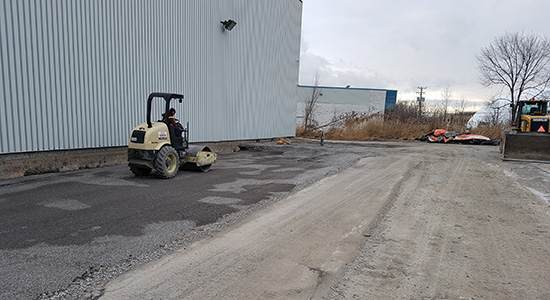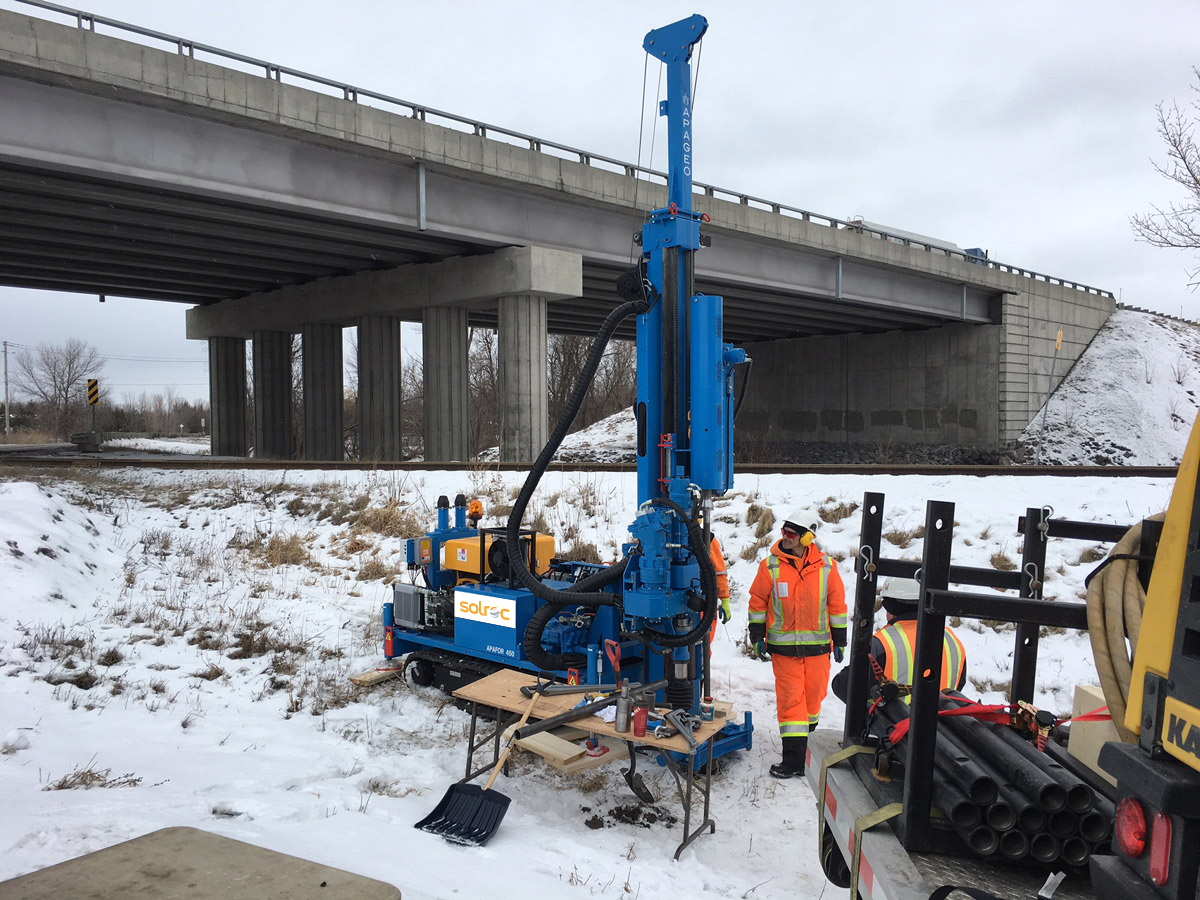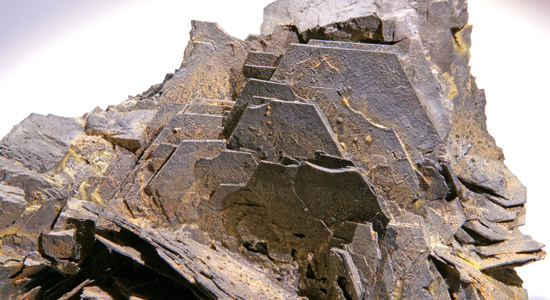SOLROC offers a full spectrum of building materials control and laboratory testing services
Building materials control and laboratory testing services for commercial, residential, and industrial projects
- CSA (Canadian Standards Association ) and BNQ (Bureau de normalisation du Québec )laboratory testing
- Quality control and testing of concrete, mortar, grout, brick, asphalt, gravel, soil, recycled materials, stabilized materials, membranes, epoxy, etc.
- Asphalt casting control by infrared thermography
- Material engineering; verification/approbation of technical protocols for gravel and concrete
- Gravel expertise
- Pyrite testing
- Pyrrhotite detection and expertise
- Inspection over water infiltration, drains, roofs, etc.
- Roof and membranes inspection (member AMCQ - Association des Maîtres Couvreurs du Québec ) through visual inspection, thermography, nuclear hygrometer, water tightness testing by certified inspectors

Compaction control.

Pressuremeter test - APAFOR 450 RP Drilling unit
For major infrastructure work such as roads, bridges, overpasses, dams, harbors, etc.
- Structural inspection of commercial or industrial buildings using dry or wet magnetoscopy , reinforcing steel rod detection in concrete, inspection and evaluation of parking concrete slabs, measurement of bridge concrete or any other construction work using nondestructive tools (hammer sounding, corrosion potential, half-cell testing, carbonatation measurement, resistivity, pH, etc.), and destructive methods such as core sampling, compression tests, air bubbles, and so on upon request.
- On-site concrete resistance measurements (Windsor probe, Lok-Test and Schmidt Hammer)
- Nondestructive concrete sounding
- Supervision of excavation, underpinning work, earth-work, compaction of embankment, slope stability, bearing capacity , etc.
- Vibration monitoring (seismograph) of demolition or dynamiting work
- Supervision of special foundation works (piles, drilled caissons)
We can assess the presence and/or extent of pyrite and pyrrhotite issues
Problems related to the swelling of pyrite
"Pyrite problems" are related to the swelling of certain granular fill material used in residential construction. Pyrite is an iron sulphide found in several rock formations, including shale, a soft sedimentary rock resembling clay, sometimes used as a backfill under the slabs on grade of basements or garages.
Under certain humid and oxygenated conditions, the pyrite oxidizes, causing swelling of the fill material which can lift and break the concrete slab. The ensuing sulphation can also attack the concrete slab. "Pyrite problems" can appear decades after the construction of a house.
In Quebec, the phenomenon is widespread on the south shore of Montreal or in the Rivière-des-Prairies district. It is also found around the St. Lawrence Valley, mainly in buildings constructed during the 1980s.
Since April 1999, manufacturers have now applied the CTQ-M100 standard, which certifies the quality of granular fill material placed underneath concrete slabs on grade. Owners must require that the contractor carrying out the construction work provides the original delivery slip confirming that the crushed stone and/or granular fill material used is certified "DB".
Owners who want to carry out a "pyrite test" must hire a laboratory recognized by the Association des firmes de génie-Conseil (AFG) that apply the CTQ-M200 standard. SOLROC is accredited by the AFG (Association des firmes de génie-Conseil) to assess the presence and/or extent of pyrite issues.

Pyrrotite - Santa Eulalia Aquiles Serdan Mine (Chihuahua), Mexico - © Didier Descouens, CC BY-SA 3.0
Pyrrhotite problems
Pyrrhotite is a naturally occurring mineral in the soil that must not be present in the aggregate used in the composition of concrete. Pyrrhotite oxidizes on contact with air and moisture and releases sulfuric acid which attacks the cement paste.
Crushed stone "contaminated" with pyrrhotite, and extracted from two (2) quarries in the Mauricie region, was used in the foundation construction for many buildings between 1996 and 2007. Several owners in the RCMs of Maskinongé, Chenaux and Nicolet-Yamaska, in the Mont-Laurier area and in Bécancour are faced with major problems related to the reaction of pyrrhotite in concrete which can seriously damage the building foundations. The most characteristic indication of the possible presence of pyrrhotite in the aggregate of the concrete is the observation of check cracking.
SOLROC has the experience and expertise to diagnose and quantify this problem and provide the required evidence before the courts.















